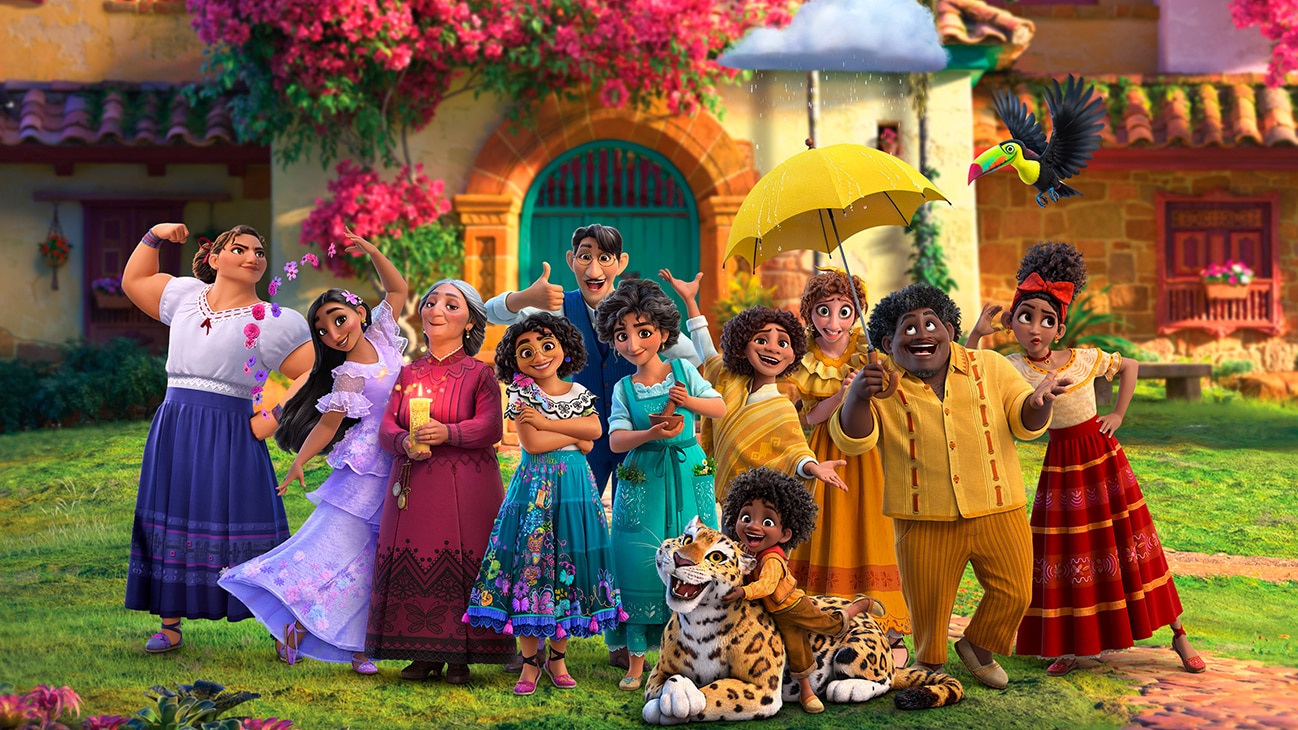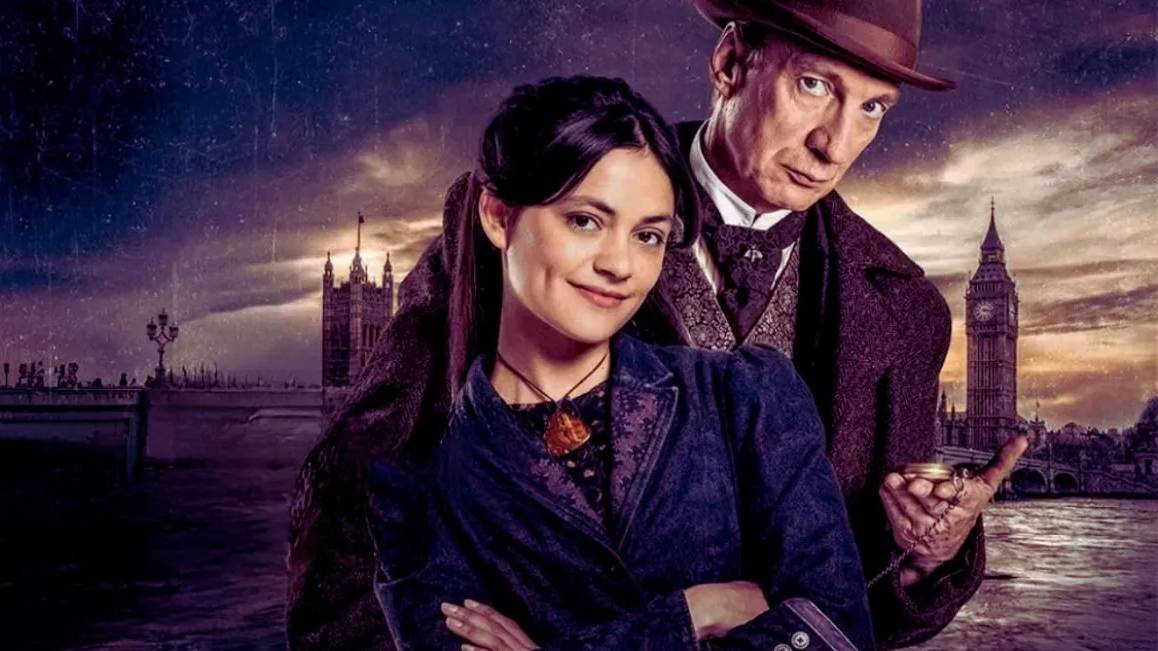What to Watch Verdict
'Encanto' is an extremely charming film, deeply insightful into the paradoxes of familial entanglement while remaining relatable to an all-ages audience.
Pros
- +
Extremely dense storytelling that doesn't get bogged down by its details
- +
Very funny, but that doesn't detract from its deep insights into family dynamics
- +
The animators are going all in, and it shows
Cons
- -
Oddly, Lin-Manuel Miranda's music is the weak link
Not to put too fine a point on it, but as a white, non-Hispanic critic, there will inevitably be limits to my perspective on Encanto, Disney’s latest animated musical feature that trades specifically on Columbian heritage and culture. I have no insight into the accuracy or the intricacy of the film’s aesthetics beyond saying that the film looks quite good with a seeming attention to detail that has been the trademark of the Walt Disney Company’s most recent forays into multiculturalism.
However, what I can speak to is the sense that Encanto is one of the most thematically bold entries in modern Disney canon, actively challenging the audience to examine their own family dynamics under the guise of a typical family musical. To call it subversive is probably a step too far, but the underlying messages about the purpose of familial bonds serve as a valuable lesson for those who value the appearance of cohesion over the well-being of their loved ones.
Despite how the film’s marketing might portray Encanto, it's not terribly interested in the standard action-adventure hero’s journey, instead focusing on a remote village in which the magical Madrigal family acts as the patrons of a community founded by refugees. Blessed by a miracle embodied in an everlasting candle flame and their personified living house, Casita, the Madrigals have each been magically endowed with a superpowered gift, which they use to provide for their community and raise their family to higher esteem within it.
The exception is Mirabel (Stephanie Beatriz), who was rejected by the magic at her coming-of-age ceremony and reconciled to permanent black sheep status. However, just as her younger cousin Antonio (Ravi-Cabot Conyers) is granted his own special ability, Mirabel is the only one to see that Casita is developing horrific cracks, a herald for the family’s waning magic.
Mirabel’s quest to discover the secret of her family’s magic is largely a domestic one, an expedition into the hearts of her sisters (Diane Guerrero and Jessica Darrow), aunt (Carolina Gaitán), uncle (John Leguizamo) and grandmother (María Cecilia Botero) to dig deeper than their unique abilities and to understand the binds that tie them together, as well as the conflicts that threaten to divide them. The pressure on Mirabel’s sister Luisa to constantly push herself to use more of her super strength, for example, is preventing her from having the vulnerability for moments of relaxed weakness.
Hers is by no means a unique situation within the Madrigal family, and the perspective afforded by the non-magical Mirabel is more often met with derision than understanding, paired with a self-serving affirmation that Mirabel is just as special as any of them without the actual conviction to see that she is just as much a contributor to the family as anyone.
This lays the groundwork for a charmingly funny, but no less touching examination of what it means to be an outcast within a family structure, wherein love is supposed to be unconditional but is often dominated by individual ego and one’s own history and traumas. Encanto manages a very careful balance between humanizing its sprawling cast of Madrigal relatives and telling a meaningful story from their interconnected lore, which makes for a remarkably dense film at roughly 100 minutes but never feels rushed or overwhelming in the frantic telling.
The only double-edged sword to the experience is, oddly enough, Lin-Manuel Miranda’s musical contributions. To their credit, the songs are extremely effective at communicating extensive expository information to the audience in a comprehensible and energetic manner. These are also the segments that allowed the film’s trailers to provide the illusion of an action-adventure narrative, as the animators often rely on abstraction and metaphor to literalize a song’s lyrics in ways that allow them to be more creative than the rustic setting might otherwise allow.
However, this does create a strange disconnect between the music and the narrative, to the point where the songs are almost intrusive despite their efficient narrative utility, and it certainly doesn’t help that there isn’t really a banger in the bunch. Miranda’s trademark spoken word rhyme schemes might be good at getting vital plot information across, but the music is either under- or over-arranged to the point where it just becomes pleasant noise after a while, rather than something to be listened to in its own right.
Even so, Encanto is an extremely charming film, deeply insightful into the paradoxes of familial entanglement while remaining relatable to an all-ages audience. Your enjoyment is likely only limited by your own taste for Disney’s particular brand of family-friendliness, but even then you might be surprised by how willing the film is to deconstruct the apparent harmony of the family unit. It may perhaps even prompt some introspection from loved ones this holiday season, and that might just be enough to push past any cynicism.
Encanto is now playing in movie theaters.
Leigh Monson has been a professional film critic and writer for six years, with bylines at Birth.Movies.Death., SlashFilm and Polygon. Attorney by day, cinephile by night and delicious snack by mid-afternoon, Leigh loves queer cinema and deconstructing genre tropes. If you like insights into recent films and love stupid puns, you can follow them on Twitter.












